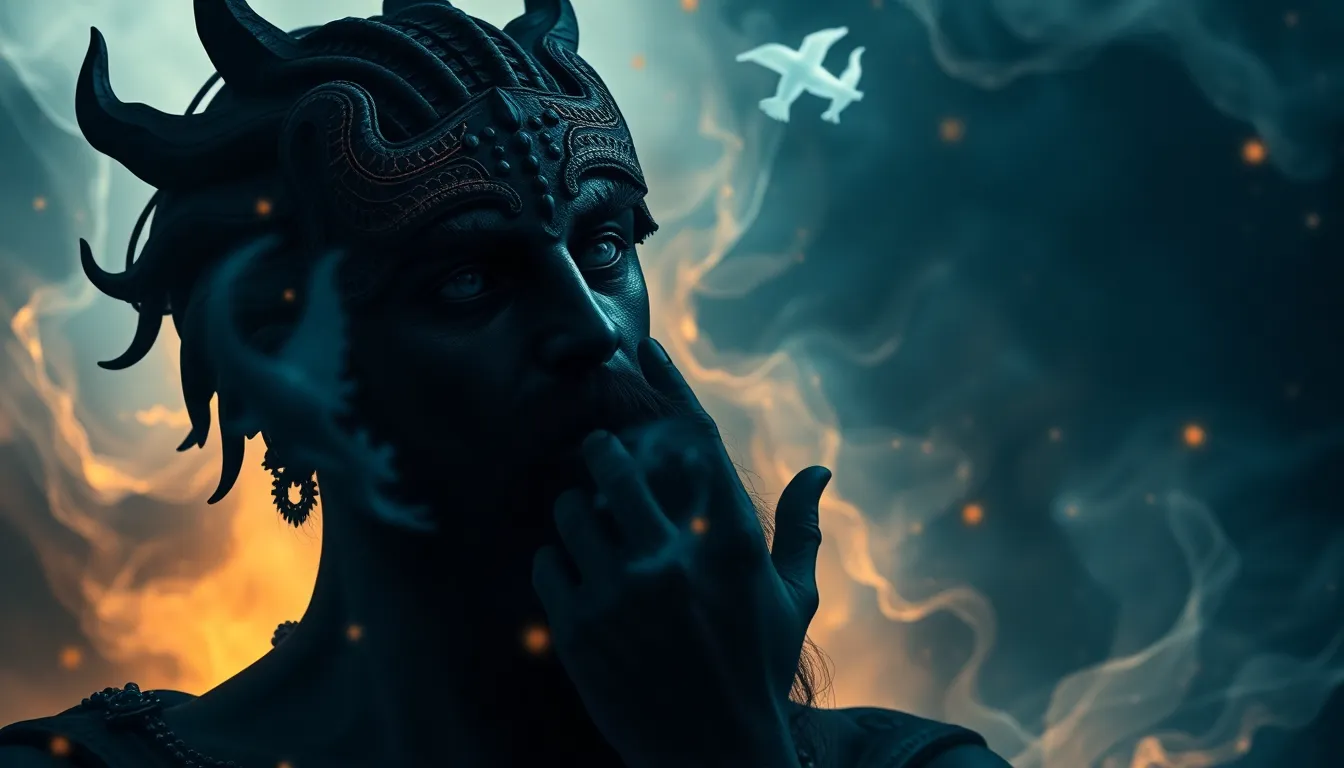Moral Myths and the Human Experience: A Deep Dive
Introduction to Moral Myths
Moral myths are narratives that shape our understanding of ethics, guiding individual behavior and societal norms. These myths often arise from cultural beliefs and historical contexts, providing a framework through which people interpret their experiences and make decisions. Their significance lies in how they influence not only individual choices but also collective identities, creating a shared moral compass within communities.
Historical Context of Moral Myths
Throughout history, various civilizations have crafted moral narratives to explain human behavior and the consequences of actions. These narratives serve as a foundation for societal norms and laws.
- Greek Civilization: Myths like the story of Prometheus illustrate the tension between knowledge and ethical responsibility.
- Hindu Tradition: The epic tales of the Mahabharata and Ramayana explore themes of duty (dharma) and righteousness, offering moral lessons through the lives of their characters.
- Indigenous Cultures: Many Indigenous narratives emphasize the interconnectedness of all beings, promoting stewardship of the earth and respect for nature.
Psychological Underpinnings of Moral Myths
The formation and perpetuation of moral myths are deeply rooted in psychology. Cognitive biases play a crucial role in how these myths are accepted and propagated.
- Cognitive Dissonance: People often hold onto moral myths even when faced with contradictory evidence, as changing beliefs can create discomfort.
- Confirmation Bias: Individuals tend to seek out information that supports their existing beliefs, reinforcing moral myths.
Moral myths shape our understanding of right and wrong by creating a narrative that aligns with our values and experiences, often leading to societal consensus on ethical issues.
Moral Myths in Religion and Spirituality
Religious narratives are rich with moral myths that guide followers in their ethical conduct and communal identity. Major world religions incorporate these myths to instill a sense of purpose and moral obligation.
- Christianity: Parables, such as the Good Samaritan, convey lessons of compassion and charity.
- Islam: Stories of prophets, like that of Prophet Muhammad, emphasize justice, mercy, and community responsibility.
- Buddhism: The tales of Buddha’s life illustrate the importance of compassion and the pursuit of enlightenment.
The Impact of Moral Myths on Modern Society
In contemporary society, moral myths continue to evolve, influencing social behavior and cultural narratives.
- The American Dream: This myth promotes the idea that anyone can achieve success through hard work, shaping individual aspirations and societal values.
- Self-Made Success: Stories of entrepreneurs and innovators create a narrative that emphasizes individualism and personal responsibility.
Social media amplifies the spread of these modern moral myths, enabling rapid dissemination and evolution of narratives that resonate with contemporary audiences.
Moral Myths and Ethics in Literature and Art
Literature and art serve as powerful mirrors reflecting and challenging moral myths. Through storytelling and creative expression, artists and writers explore ethical dilemmas, critique societal norms, and offer new perspectives on established narratives.
- George Orwell’s “1984”: A critique of totalitarianism and the manipulation of truth.
- Harper Lee’s “To Kill a Mockingbird”: An exploration of racial injustice and moral courage.
- Pablo Picasso’s “Guernica”: A powerful anti-war statement that challenges the myths surrounding nationalism and conflict.
The Role of Moral Education in Myth-Busting
Education plays a crucial role in fostering critical thinking and moral literacy. Teaching students to engage with moral myths critically can help them navigate ethical complexities in a diverse society.
- Encouraging Discussion: Creating spaces for open dialogue about ethical beliefs and moral narratives.
- Promoting Critical Thinking: Teaching students to analyze and question the origins and implications of moral myths.
Controversies Surrounding Moral Myths
Moral myths are often contentious, leading to debates about moral relativism and absolutism. Different cultures and communities may hold conflicting moral beliefs, resulting in contested narratives.
Examples include:
- The debate over freedom of speech versus hate speech in various societies.
- Discussions surrounding reproductive rights and the moral implications of choice.
Future Directions: Evolving Moral Myths in a Globalized World
As globalization continues to connect diverse cultures, moral myths are likely to evolve. New narratives may emerge to address pressing global issues, such as:
- Climate Change: The development of a collective moral responsibility towards environmental stewardship.
- Social Justice: A growing emphasis on equity and inclusion as a moral imperative.
Conclusion: The Enduring Legacy of Moral Myths
Moral myths have an enduring influence on the human experience, shaping our values, behaviors, and societal structures. As we navigate a rapidly changing world, it is essential to engage critically with the moral narratives that inform our lives. By questioning and re-evaluating these myths, we can foster a more just and compassionate society. Every individual has the power to contribute to the evolution of moral narratives, ensuring they reflect the complexities of our shared human experience.



